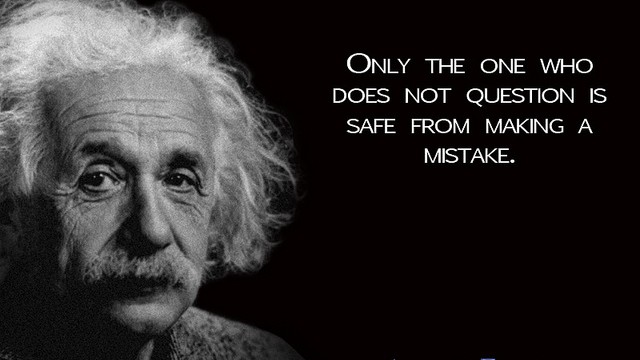
By Warren Berger
Friday March 14 is the 135th anniversary of Albert Einstein’s birthday, a good time to think about the importance of asking questions. This was a big theme for Einstein, who told us, “The important thing is not to stop questioning," while also urging us to question everything and “Never lose a holy curiosity.”
Einstein understood that questioning is critical to learning and solving problems. If he were alive today, Einstein would see a world in which questioning has become more important than ever before. But he might also be left wondering why, for the most part, we still don’t encourage questioning or teach it to our children.
Let’s start with the growing importance of questioning. Perhaps the best evidence of this can be seen in today’s high-tech world. The leaders of Facebook, Amazon, Google, and a number of other leading companies are known as consummate questioners who constantly ask, Why should we settle for this? and What if we try something different? A number of the top executives in Silicon Valley were educated in Montessori schools, where their curiosity was given room to roam at a young age.
This has served them well in today’s dynamic tech market—because their well-honed questioning skills help them analyze and solve problems, adapt to change, identify fresh opportunities, and lead companies in new directions. Indeed, asking the right question is often the starting point of innovation. In writing my book, A More Beautiful Question, I traced the origins of many breakthrough inventions and “disruptive” business start-ups—everything from the making of the cell phone to the birth of the internet, along with the launches of the companies Netflix, Nest, and Dropbox—and found that each began with a person pursuing an insightful question no one else was asking at the time. The questions led to answers that, eventually, have led to billion-dollar paydays. It has been said that, in Silicon Valley today, “questions are the new answers.”
If anything, the ability to ask insightful questions will be even more critical tomorrow than it is today. As change continues to accelerate, tomorrow’s leaders—and the larger workforce—will have to keep learning, updating and adapting what they know, inventing and re-inventing their own jobs and careers through constant, ongoing inquiry.

